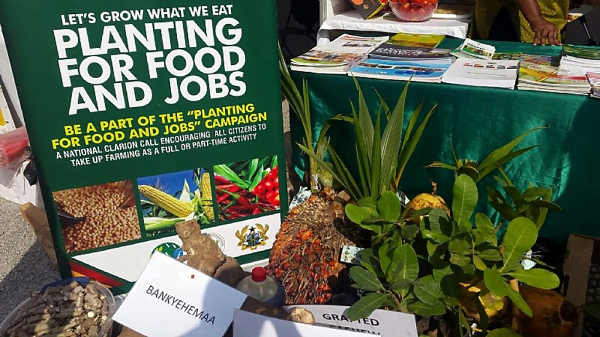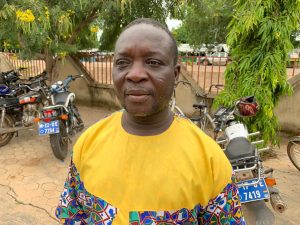The Planting for Food and Jobs (PFJ) was launched in 2017 purposely to ensure food security in the country while also providing jobs through the support of subsidized fertilizers for farmers.
However, the Peasant Farmers Association of Ghana (PFAG) says the policy introduced by the current government is not serving its purpose.
According to the Association, farmers across the country are struggling with challenges of the policy that pose a serious threat to food security in the country if not addressed immediately.
“The cost of 50kg of NPK fertilizer in 2021 of Gh¢ 160.00 increased to Gh ¢ 400.00 in 2022 (a 150% increase) and Urea increased from Ghc150.00 to Ghc450.00 during the same period. In addition, the cost of agro-inputs such as pesticides, herbicides, seeds, and mechanization equipment have not fallen following the supply chain bottlenecks created by Covid-19.”
Upper East Regional Focal Person and National Secretary for the Peasant Farmers Association of Ghana, Isaac Pabia disclosed this during stakeholder engagement for farmers in Navrongo in the Upper East Region.
The association believes the disruptions in global supply chains caused by the Covid-19 pandemic, the Russian-Ukraine war, the depreciating cedi, as well as soaring cost of fuel, are factors that have triggered a dramatic spike in the price of fertilizer.
Due to the challenges that bedevilled the government flagship policy, the Peasant Farmers Association of Ghana says some farmers who could not sustain the farming business were compelled to abandon farming activities during this farming season due to the high cost of subsidized fertilizer and agro-inputs.
“The support provided by the government has been inadequate. The subsidy component, as well as the quantity of fertilizer supplied under the Planting for Food and Jobs programme, has been reduced. Many farmers have had to reduce their scale of production or cut down costs by removing crucial inputs like fertilizer from the production equation.”
“There are also some farmers who have had to abandon their farming activities altogether this season. The cumulative effect is the shortage in food supply, high cost of locally produced foods, and the consequent closure of some agro-based industries due to difficulty in accessing raw materials.”
“The global food security index indicates that the country has dropped from 78th position to 82nd on the food security outlook and food inflation is at an all-time high of over 30%.”
As a remedy, the association has therefore recommended that government should develop a fertilizer processing plant in the country to reduce the high dependency on imported fertilizer.
While encouraging citizens to consume locally produced food, Mr. Pabia, on behalf of PFAG, also proposed deliberate policies to improve the quality of Ghanaian foods, especially rice geared towards creating optimal market conditions for investors along the agric-value chain, lessening over-reliance on foreign goods, and position Ghana as a net exporter.
“Given that government subsidy on fertilizer appears to be failing and making it look unsustainable, there should be an alternative support system that mandates financial institutions to allocate some percentage of their loan portfolio with flexible payment terms for farmer groups and associations to support their members. Subsidies are necessary for food security as has been shown in the history of advanced countries.
Reducing inefficiencies in the fertilizer subsidy program and addressing the concerns of smallholder farmer financial challenges is critical,” the association added.
To ensure food security in the country, while supporting farmers, the Peasant Farmers Association of Ghana wants the government to take urgent steps to support dry season farming by improving irrigation and offering special support for farmers to increase their production in the coming dry season.
With funding from International Budget Partnership (IBP), PFAG says it is partnering with the Ministry of Food and Agriculture to sensitize farmers on shifting focus on organic fertilizer, and modalities for the PFJ program.
Source: A1Radioonline.com|101.1Mhz|Joshua Asaah|Navrongo|Ghana




